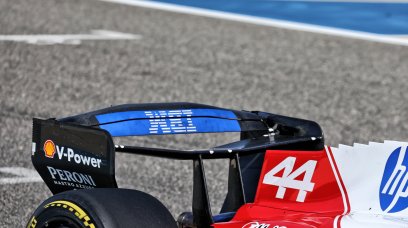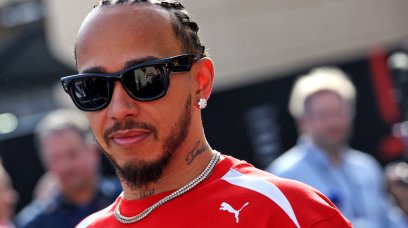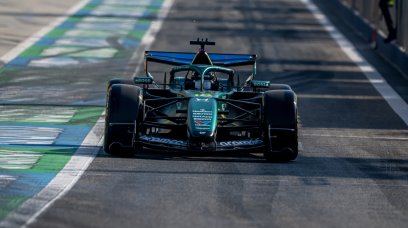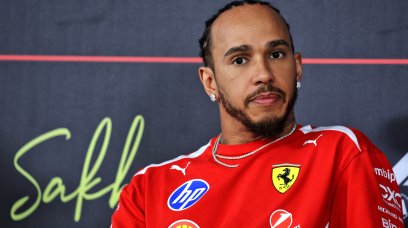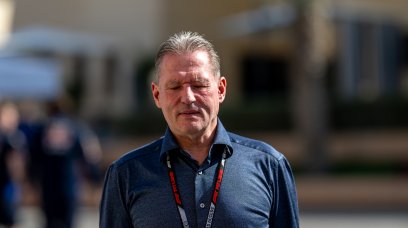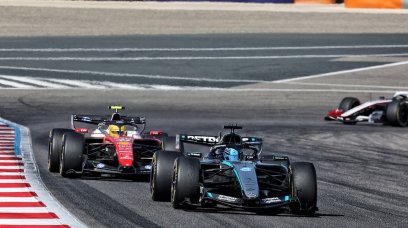It’s a strange phenomena but even before a season is a quarter of the way through, Formula 1 fans thoughts turn to the next one: Will X or that Y make the cut; will Z be staged in April or October; will there be two or three tripleheaders; will events rotate? It’s a bit like wondering at noon on your current birthday what pressies you’ll receive next year or where you’ll celebrate…but there you go. Still, it’s fun to speculate, particularly when F1 CEO Stefano Domenicali publicly comments that such is the demand for F1 globally that 30 races could be staged per year. No doubt that is currently so despite the Concorde Agreement dictating a maximum of 24 races without unanimous team consent, and 25 with full agreement. The oldest trick in marketing textbooks is, though, to create perceptions that demand for a product is greater than actual: Such tactics drive up prices and force rush (rash?) decisions. Ultimately talk is cheap, but when circuits and/or promoters are asked to commit upwards of €30m and provide sureties for another €100m or so they generally fade away. It occurred with Kyalami, Hanoi, Nurburgring/Hockenheim, Sepang and others. Ultimately such talk is about hosting fees: If F1 charged a single dollar to host events there would be hundreds of applicants; charge $150m per event and promoters head for the door. Ferrari could have queues of punters stretching the 30 kilometres from Maranello to Modena were it to offer SF90s at $50k a pop but at risk of losing exclusivity and status, and ultimately bankruptcy.
South Africa and a fourth US race?
What is, however, clear is that F1 plans to expand massively outside of Europe: The USA this year stages three Grands Prix - up from none 10 years ago - and there is even talk of a fourth one; Seoul is seeking an event and talk of an African race refuses to die. Whilst there is much speculation about a Kyalami race, the situation seems much the same as last year save that wannabe promoter has gone low profile, replaced by an entity with alleged funding but unable to find a pen… there have been many conversations but no conversion into contract. According to local sources, an end of April deadline has been set, but last year the cut-off was extended thrice, from May to August. Regardless of the state of play in Africa, global expansion places enormous pressure on European venues. Many are bankrolled by subsidies granted by reluctant local or state authorities - who are increasingly criticised by ‘green’ factions - or are privately funded, meaning little head room for higher hosting fees as races need to at least break even or they disappear. Silverstone and Zandvoort fall into the latter group.
Warning of race rotation
Domenicali sees race rotation as a potential solution, particularly where events are underwritten by public purses, partially or in full. F1’s argument is that governments would need to fund an event only every second year, thereby reducing subsidies (for which read ‘event losses’) by 50% or two-thirds where three events rotate annually…all on hiked race hosting fees due to ‘demand’ and without continuous tourism benefits! Readers with long memories recall that during the late noughties Domenicali’s predecessor Bernie Ecclestone persuaded Nürburgring and Hockenheim, who had both played to full houses during the same season just three years earlier, to accept rotation. The former withdrew after hosting four events, while the latter stuttered along for five races but only after F1 agreed to indemnify the local council against losses. Saliently, Germany now hosts no F1 events; with share deal once proposed for Barcelona and Valencia being rejected by the respective promoters. The reason comes down to elementary economics: What looks good on paper holds major implications for infrastructure improvements and operational costs, which could only be amortised over double the payback period – or thrice that where three Grands Prix rotate annually. Consider this: A circuit needs to upgrade grandstands or its pit buildings or whatever at a cost of €10m, so €2m per annum over five years under an annual race contract. However, under a race share deal the payback is 10 years (or even 15 years with triple share) - difficult to sell to backers, be they politicians, banks or investors. Thus, the choice for promoters is no deal or no upgrades, creating a vicious circle as Germany discovered.
Threats for Britain and Netherlands
In the case of Zandvoort, Max Verstappen, who regularly alludes to retirement within five years , and without whose successes the Dutch event would hardly exist - may well be gone before upgrades are half paid for; ditto Silverstone and Lewis Hamilton. Make it a three-way (15-year amortisation) rotation for the British race and George Russell may also have retired before the debt is squared… Crucially, the Germans also discovered that marketing impetus dies with rotation: Promoters generally open ticket sales for the next year’s event while enthusiasm is sky-high: immediately after current race, as in the next day. Flogging tickets for an unknown date two years hence is well-nigh impossible as the event needs to be reinvented, plus absence of a year provides punters with opportunities of going elsewhere in the interim. The bottom line is that ‘race sharing’ makes no economic sense for venues, race promoters and local authorities, and ultimately the fans. Equally, where dropping a race from the calendar kills a single event while enabling another elsewhere to thrive, history records that rotation eventually kills both. The effects of triple rotation would be even worse by a magnitude of three.
Most read
